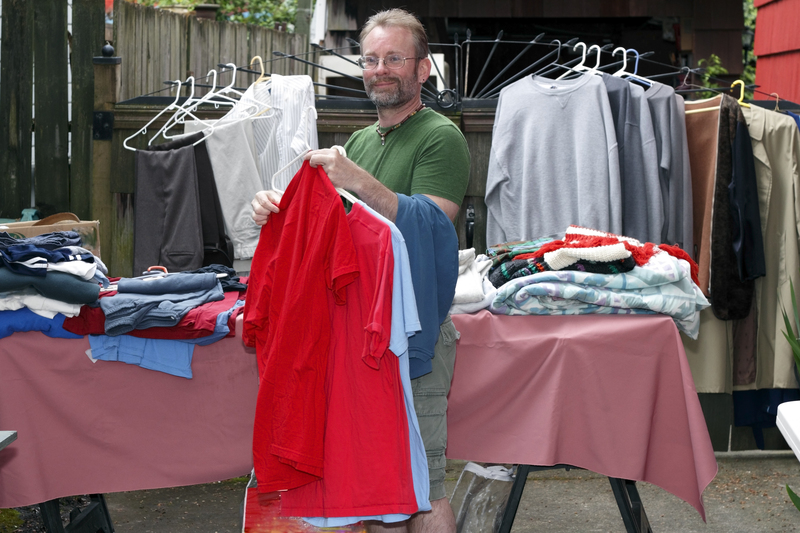Actionable Advice for Responsible PPE Waste Handling
The surge in personal protective equipment (PPE) usage since the COVID-19 pandemic has magnified the importance of responsible PPE waste management. From hospitals and clinics to individual households, PPE such as masks, gloves, face shields, and gowns have become integral for safety. However, their disposal poses mounting environmental and public health challenges. In this comprehensive guide, we provide practical, SEO-optimized, and actionable advice for responsible PPE waste handling for individuals, organizations, and communities.

Understanding the Scope of PPE Waste
Why does PPE waste matter? Modern PPE is commonly made of synthetic polymers and plastics, designed for single-use. This durability leads to accumulation in landfills and waterways, often causing pollution and health hazards. The World Health Organization (WHO) and various environmental agencies are voicing urgent concerns over the mounting PPE waste crisis.
- Volume Increase: The global use of disposable masks alone reached billions per month during the pandemic.
- Environmental hazard: PPE items contribute to microplastics in the oceans, threatening marine and human life.
- Public health risk: Used PPE can harbor and transmit pathogens if mismanaged, increasing infection dangers.
Types of PPE Waste
It is essential to distinguish PPE waste categories for effective handling:
- Medical-grade PPE - Used primarily by healthcare professionals (surgical masks, gloves, gowns).
- Community PPE - Masks and gloves used by the general population.
- Industrial PPE - Respirators, chemical-resistant clothing, and other protective items from factories and laboratories.
Best Practices for PPE Waste Handling
Responsible disposal methods can significantly reduce the environmental and health impacts of PPE waste. The following steps and actionable advice will help guide safe PPE waste handling across different settings.
Practical Steps for Individuals
-
Use Reusable PPE Whenever Possible
If suitable, opt for cloth masks, washable gloves, and face shields that can be sanitized and reused. This reduces the volume of plastic PPE waste dramatically. -
Segregate and Bag Used PPE
Place all disposable masks, gloves, and related items in a dedicated, leak-proof bag. This prevents contact and minimizes contamination risks. -
Follow Local Guidelines
Check with your local waste authorities for regulations regarding PPE disposal. Some communities require special labeling or separate bins for PPE waste. -
Do Not Litter
Never discard PPE on streets, parks, or waterways. Littered PPE poses grave environmental and public health risks. -
Practice Hand Hygiene
After handling used PPE, immediately wash your hands with soap and water or use hand sanitizer to limit infection risk.
Steps for Businesses and Workplaces
Organizations, including offices, shopping centers, and industrial facilities, shoulder a greater responsibility for systematically collecting and managing PPE waste. Consider these actionable recommendations:
-
Install Clearly Labeled PPE Bins
Place special containers in visible, high-traffic areas for used PPE. Mark bins with explicit instructions: "PPE Waste Only". -
Promote Employee Awareness
Conduct regular training and reminders on the importance and process of safe PPE disposal. -
Schedule Regular Waste Collection
Empty PPE bins daily or more frequently, using designated staff equipped with gloves and masks for safety. -
Engage Licensed Waste Management Services
Partner with certified contractors specializing in hazardous or medical waste for transportation and treatment of PPE. -
Maintain Records and Audits
Keep detailed logs of PPE waste volume and handling procedures for compliance and improvement.
Innovative Solutions for Reducing PPE Waste Impact
Beyond disposal, modern waste management emphasizes reduction, recycling, and innovation. Here are recent advances and actionable strategies for making PPE waste handling more sustainable:
Adopt Eco-Friendly PPE Alternatives
- Biodegradable Masks and Gloves: These utilize plant-based polymers that break down more rapidly in landfills compared with conventional plastics.
- Reusable PPE with Filter Inserts: Some masks allow filter replacements, minimizing waste and maintaining protection.
PPE Recycling Initiatives
- Specialized Recycling Programs: Some waste management companies offer PPE-specific recycling--including chemical and thermal processing to render contaminated items safe for further material recovery.
- Drop-Off Points at Pharmacies or Hospitals: Community members can safely deposit used PPE in dedicated receptacles for secure, environmentally responsible processing.
Collaborate with Environmental Organizations
- Partner with green NGOs: Spread awareness, launch take-back schemes, and support clean-up drives for PPE littering.
- Corporate Social Responsibility (CSR) Initiatives: Businesses can sponsor educational campaigns and fund research into sustainable PPE materials.
Legal and Regulatory Considerations for PPE Waste
Governments and municipalities worldwide are recognizing the critical nature of PPE waste handling. Actionable compliance steps include:
- Adhering to national and local PPE waste classification (hazardous vs. non-hazardous).
- Retaining proof of safe disposal through certified waste management partners.
- Ensuring PPE is not recycled with household plastics unless processed through specialist streams.
- Keeping up-to-date with emerging regulations; e.g., EU Waste Framework Directive or OSHA guidelines.
Penalties for improper disposal can include substantial fines, legal action, and reputational harm--especially for companies and public institutions.
Community-Level Engagement for PPE Waste Reduction
Real change starts locally. Here's how communities can foster responsible PPE waste handling:
- Awareness Campaigns: Partner with local media and schools to educate on the dangers of PPE littering and proper disposal methods.
- Community Collection Drives: Organize neighborhood PPE clean-up events and establish designated drop-off points.
- Feedback and Reporting Hotlines: Establish channels for residents to report improper PPE disposal and suggest improvements.
Case Study: Successful Community PPE Management
A city council in Europe installed color-coded bins and disseminated easy-to-understand guidelines via posters, school programs, and social media. They saw a 50% reduction in PPE litter within four months, highlighting the power of collaborative community action.
Environmental and Health Risks of Improper PPE Disposal
Understanding the consequences of improper PPE waste handling is crucial for motivating better practices.
- Environmental Pollution: Masks and gloves degrade into microplastics, which enter food chains and supply water sources.
- Wildlife Harm: Animals can mistake PPE for food or become entangled, leading to injury or death.
- Disease Transmission: Unsafely discarded PPE can harbor bacteria and viruses, risking sanitation worker safety and public health.
Conclusions and Key Takeaways
Adopting actionable strategies for responsible PPE waste disposal is an urgent necessity for safeguarding both public health and the environment. Whether you are an individual, organization, or community, following best practices, embracing innovative solutions, and staying compliant with regulations are essential steps in reducing the negative impact of PPE waste.
Summary Checklist: Responsible PPE Waste Handling
- Use reusable or eco-friendly PPE where feasible.
- Never litter PPE; use dedicated bins or disposal bags.
- Follow local and organizational guidelines for PPE waste.
- Engage in or support recycling and upcycling initiatives.
- Educate others and foster community involvement.

FAQs on Responsible PPE Waste Management
Can you recycle disposable masks and gloves?
Standard public recycling facilities do not accept disposable masks and gloves because of contamination risks. Use specialized PPE recycling programs if available.
What is the safest way to dispose of PPE at home?
Place used PPE in a sealed, labeled plastic bag before disposing with general waste, and always wash your hands afterward.
How can businesses minimize PPE waste?
Implement reusable PPE where practical, educate staff, install PPE-only bins, and partner with professional waste handlers.
What should I do if I see PPE litter in my neighborhood?
Report it to local authorities or participate in organized clean-up efforts--use protective gloves and a tool to pick up items safely.
Further Resources
Your actions today protect the planet and people tomorrow. Make responsible PPE waste handling your priority for a cleaner, safer world.